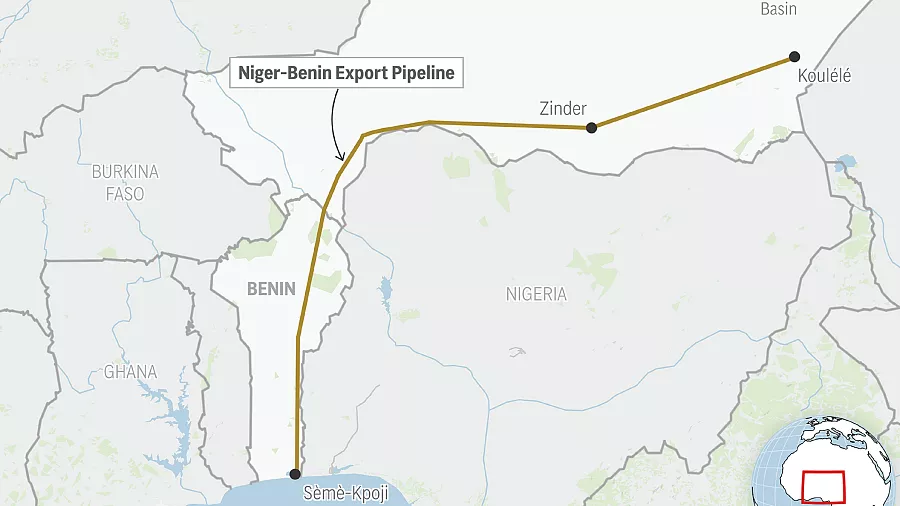Niger is exploring alternative routes for its oil exports following a diplomatic dispute with Benin that has jeopardized a China-backed pipeline project amid internal security challenges stemming from a recent coup.
The 1,930-kilometer (1,200-mile) pipeline, originating from Niger’s Agadem oil field constructed with Chinese investment, was intended to channel oil to Benin’s port of Cotonou. This project aimed to significantly boost Niger’s oil production under a $400 million deal with China’s state-run petroleum company.
However, diplomatic tensions with Benin led to the pipeline’s closure last week, exacerbated by recent attacks from the local Patriotic Liberation Front rebel group. The group claims responsibility for disabling part of the pipeline and threatens further sabotage unless Niger cancels its deal with China.
In response, Niger’s interim government is considering rerouting the oil through Chad and Cameroon. This alternative was initially considered alongside a Nigerian route before Niger’s elected leaders opted for the Benin pipeline.
According to Seidik Abba, president of the International Centre for Studies and Reflections on the Sahel (CIRES), the Chad option poses logistical and financial challenges, especially regarding securing new investments, potentially from China.
“The Chad option involves building a new pipeline, which raises significant questions about financing and investor interest,” Abba noted.
The stalled pipeline poses economic risks for Niger, which had anticipated a substantial economic boost from increased oil exports. The World Bank had projected Niger’s economy to grow by 6.9% this year, with oil revenues playing a pivotal role.
The diplomatic rift dates back to Niger’s coup last year, leading neighboring countries to close borders and exacerbating economic losses, including transit fees for Benin.

